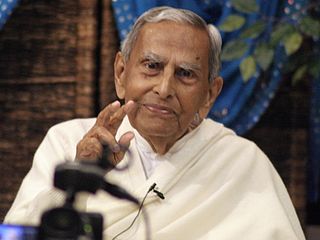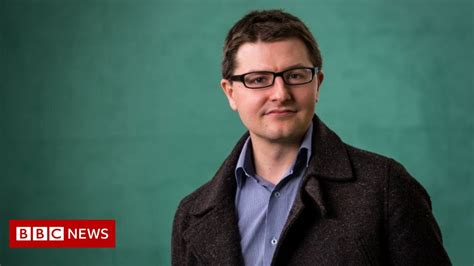A Quote by Richard Bach
What a story that would make! How many men and women go through the same rivers, menaced by the same sharp clichés, the same jagged dangers that have threatened us! If the idea stands up, I thought, it would be worth uncovering the typewriter! How Richard-years-ago would have wanted to know: What happens when we set off searching for a soulmate who doesn't exist, and find her?
Related Quotes
Lastly, she pictured to herself how this same little sister of hers would, in the after-time, be herself a grown woman; and how she would keep, through all her riper years, the simple and loving heart of her childhood: and how she would gather about her other little children, and make their eyes bright and eager with many a strange tale, perhaps even with the dream of Wonderland of long ago: and how she would feel with all their simple sorrows, and find a pleasure in all their simple joys, remembering her own child-life, and the happy summer days.
Sarcastic Science, she would like to know,
In her complacent ministry of fear,
How we propose to get away from here
When she has made things so we have to go
Or be wiped out. Will she be asked to show
Us how by rocket we may hope to steer
To some star off there, say, a half light-year
Through temperature of absolute zero?
Why wait for Science to supply the how
When any amateur can tell it now?
The way to go away should be the same
As fifty million years ago we came-
If anyone remembers how that was
I have a theory, but it hardly does.
To-morrow would bring its own trial with it; so would the next day, and so would the next; each its own trial, and yet the very same that was now so unutterably grievous to be borne. The days of the far-off future would toil onward, still with the same burden for her to take up, and bear along with her, but never to fling down; for the accumulating days, and added years, would pile up their misery upon the heap of shame.
I did not want to move. For I had the feeling that this was a place, once seen, that could not be seen again. If I left and then came back, it would not be the same; no matter how many times I might return to this particular spot the place and feeling would never be the same, something would be lost or something would be added, and there never would exist again, through all eternity, all the integrated factors that made it what it was in this magic moment.
This is what happens to man in death. He puts off his overcoat, or what we call the physical, the gross body, and he is clothed in what, for the time being, I would call the astral body. The man continues to be the same, even as I would continue to be the same, if I took off this shawl. I would then appear to you in my shirt, but I would continue to be the same man.
I think the big thing for Simple Plan is that we were able to keep the band members, the same five guys, the same lineup from the start. That's not easy. We grew up together. We're friends. We come from the same world. We've always had the same dreams and goals. I think we realized, as the years go by, how precious it is to have that, to build that, to see so many bands break up... it makes us realize how different we are to all that. We're really proud of that.
He wanted to hear her concerns and alleviate them, he wanted to hold her and kiss her and convince her that he would find a way to make their relationship work, no matter how hard that might be. He wanted to to make her hear his words: that he couldn't imagine a lofe without her,that his feelings for her were real. But most of all, he wanted to reassure himself that she felt the same way about him.
People were intrinsically selfish, and many hated the idea of a woman in charge of the Institute. They would not put themselves at risk for her. Only a few weeks ago he would have said the same thing about himself. Now, knowing Charlotte, he realized to his surprise, the idea of risking himself for her seemed an honor, as it would be to most Englishmen to risk themselves for the queen.
At the very outset I have to tell you that truth is what it is. You cannot mold it, you cannot change it. It is always the same. It has been the same, it is the same, it will be the same. But to say that we know the truth and that we have the truth is really a self-deception. If you had known the absolute truth there would have been no problems and everybody would have said the same thing. There would be no discussions, no arguments, no fights and wars. But when we don't know the absolute truth then we can find out our own mental conceptions as the truth. But this mind is so limited.
I was thinking about framing, and how so much of what we think about our lives and our personal histories revolves around how we frame it. The lens we see it through, or the way we tell our own stories. We mythologize ourselves. So I was thinking about Persephone's story, and how different it would be if you told it only from the perspective of Hades. Same story, but it would probably be unrecognizable. Demeter's would be about loss and devastation. Hades's would be about love.
I've been to Washington many times over the years for stories, and it always seems remarkably the same. More the same than the rest of the country. It's almost like they dress the same as they did 20 years ago. The same old guys are sitting outside the same dirty, dingy secret offices in the Capitol that you're not allowed to go in.
Writing two stories [in the Thorn and the Blossom] about the same set of events that were complete stories in themselves, but also added up to a larger story. As I was writing them, I kept going back and forth, because something would happen in one story that would have to be reflected in the other story. And yet the same event would also have to be perceived in different ways by Brendan and Evelyn, because they are different people with their own interpretations.






































